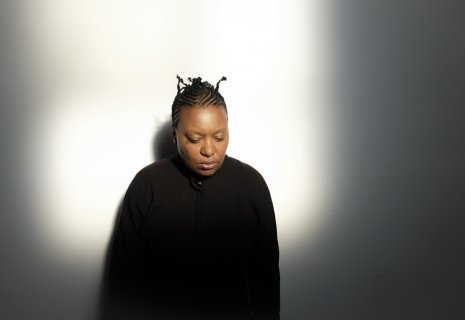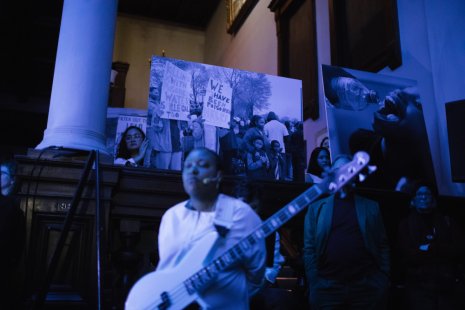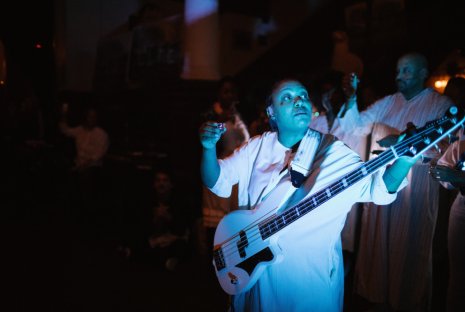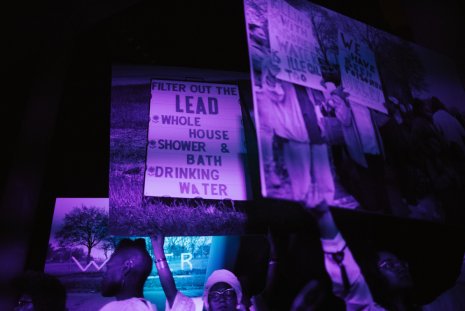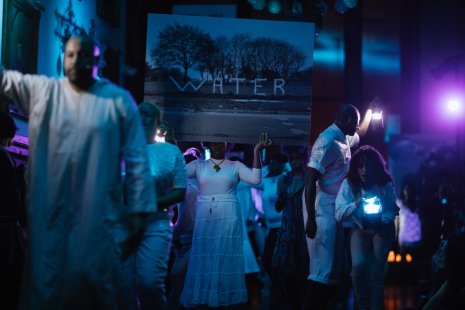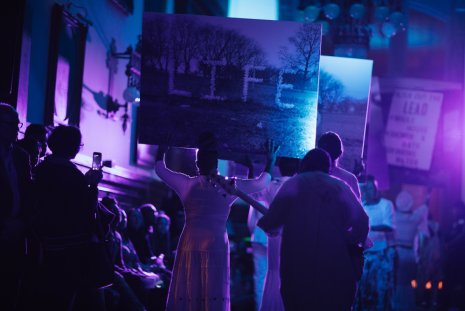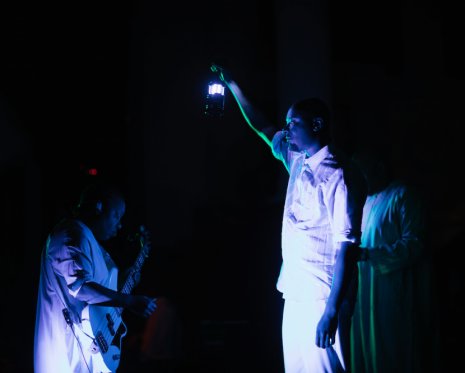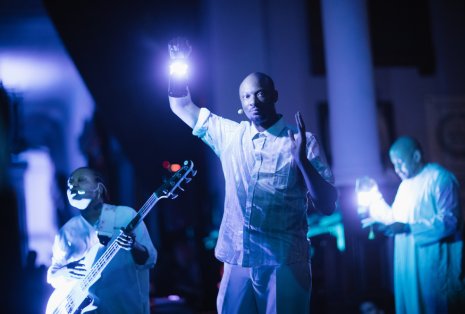Chapter One
THE TEXT
You might know Meshell Ndegeocello as songwriter - working from scratch (and re-imagining covers) - and have her voice in your head.
[1]
You might know, too, that as an ace bass, keyboard, and percussion player she’s performed with many artists from Herbie Hancock, Madonna and U2, to Jason Moran, Chaka Khan, the Blind Boys of Alabama and the Rolling Stones. And, once upon a time, early on, did a rousing version of “Wild Nights” with John Mellencamp.
And you might know – above all - that her work is a study in continued experimentation, growth and evolution as she moves between and beyond rock, funk, jazz, R&B, hip hop, and spoken word genres.
“I am not a believer in genres,” she says.
― James Baldwin, Notes of a Native Son
Consider this a catch-up on a few things she’s been doing lately…and a bit of back-story about where she’s been.
First performed in 2016, the theatre event, Can I Get a Witness? The Gospel of James Baldwin inspired by “The Fire Next Time” - conceived by Ndegeocello and created in collaboration with and directed by Charlotte Brathwaite - is an evolving work. An immersive performance employing music, movement, writing and imagery, it’s part concert, part African-American church service performed in the round, a ritual, a celebration, a testimonial and a wake-up call. In an intimate conversation with James Baldwin’s fierce, poetic 1963 essay about race in America, it asserts the transformative power of art in community.
Ndegeocello says, “Can I Get A Witness began as an idea, a meditation on a text that I needed to hear, that I thought people needed to hear again. It evolved from a tribute, to a sanctifying of Baldwin himself, to him as the deity in what became a secular church service of performance. I [had] never done anything theatrical [before]. It required letting in other experts, allowing other people to interpret in their own media, to come together, and layer on to mine…I was the seed but not the leader and had to listen as well as create.”
Listening is the core of Ndegeocello’s practice, listening to songs that have come before, and to the imagined melodies and structures that play in her head.
In her latest album, Ventriloquism, [her 12th album and 10th Grammy nomination], Ndegeocello covers songs she listened to when she was young and reinvents them in her own musical voice. Like who? Prince, Sade, Janet Jackson, Tina Turner, George Clinton…
“I listened to these songs in my parents car, on the radio stations around me then. I loved them all and took refuge in their familiarity and opportunity… These songs let me feel those old ways and let me turn them into new days, let me put my own stamp on the past…”
“I don’t think of my work as a body of work. It’s more a series of efforts…a fellowship, a means for connection, a salve, a way to expand into as many selves as I can be.”
Early on in her professional music-making life, record executives pressed her to make the same kind of album again and again, to make what they called “black music” – to fit the narrow-casted radio formats.
But that was not her way. Breaking free from what the market place determined, in the early ‘90’s, Ndegeocello set forth into uncharted territory.
But that was not her way. Breaking free from what the market place determined, in the early ‘90’s, Ndegeocello set forth into uncharted territory.
- Adrienne Rich
Her debut album, Plantation Lullabies, kicked off the era of what came to be called both the “new Black Aesthetic” and “neo-soul.” Wearing the multiple hats she has continued to wear, Ndegeocello wrote all the songs, played the majority of the instruments, performed all of the vocals and served as producer.
Her expressive freedom extends past stylistic boundaries to what someone called “genre and gender bending,” inspiring and opening up spaces in both sound and presentation for peers and the next generation.
[2]
THE MUSICIAN
A multi instrumentalist, the bass has been her primary instrument.
“… the reason I became so attracted to [the bass] is that it’s rhythmical…it’s like the foundation without being really up front. Like you miss it when it’s gone; you notice it. And I just like that position in the band. Like, “I’m not up front, but you’ll miss me if I’m not there.”
“I feel the bass player has a very important job. They ground the harmony…and you're not the guitar player, so you don't have to play all that flashy stuff…you're rhythm, you're harmony, you control the groove. And so that's why I wanted to be a bass player.”
“I really like helping other people I’m playing with and bring their ideas to fruition…I'm there to make everyone else look really good.”
Notes:
1. Salamishah Tillet, https://www.npr.org/sections/therecord/2012/10/24/163542504/two-women-me...
2. Tammy L. Kernodle, Diggin’ You Like Those Ol’ Soul Records: Meshell Ndegeocello and the Expanding Definition of Funk in Postsoul America, American Studies, 52:4, p 202.
3. Marc Anthony Thompson, https://bombmagazine.org/articles/meshell-ndegeocello/


